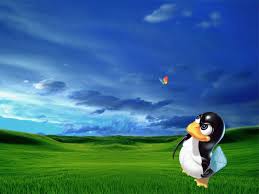Desktop Backgrounds For Windows Biography
A society, or a human society, is a group of people related to each other through persistent relations, or a large social grouping sharing the same geographical or virtual territory, subject to the same political authority and dominant cultural expectations. Human societies are characterized by patterns of relationships (social relations) between individuals who share a distinctive culture and institutions; a given society may be described as the sum total of such relationships among its constituent members. In the social sciences, a larger society often evinces stratification and/or dominance patterns in subgroups.
Insofar as it is collaborative, a society can enable its members to benefit in ways that would not otherwise be possible on an individual basis; both individual and social (common) benefits can thus be distinguished, or in many cases found to overlap.
A society can also consist of like-minded people governed by their own norms and values within a dominant, larger society. This is sometimes referred to as a subculture, a term used extensively within criminology.
More broadly, a society may be described as an economic, social, or industrial infrastructure, made up of a varied collection of individuals. Members of a society may be from different ethnic groups. A society can be a particular ethnic group, such as the Saxons; a nation state, such as Bhutan; or a broader cultural group, such as a Western society. The word society may also refer to an organized voluntary association of people for religious, benevolent, cultural, scientific, political, patriotic, or other purposes. A "society" may even, though more by means of metaphor, refer to a social organism such as an ant colony or any cooperative aggregate such as, for example, in some formulations of artificial intelligence.
The term "society" came from the Latin word societas, which in turn was derived from the noun socius ("comrade, friend, ally"; adjectival form socialis) used to describe a bond or interaction among parties that are friendly, or at least civil. Without an article, the term can refer to the entirety of humanity (also: "society in general", "society at large", etc.), although those who are unfriendly or uncivil to the remainder of society in this sense may be deemed to be "antisocial". Adam Smith wrote that a society "may subsist among different men, as among different merchants, from a sense of its utility without any mutual love or affection, if only they refrain from doing injury to each other.
Used in the sense of an association, a society is a body of individuals outlined by the bounds of functional interdependence, possibly comprising characteristics such as national or cultural identity, social solidarity, language, or hierarchical organization.
Society, in general, addresses the fact that an individual has rather limited means as an autonomous unit. The Great apes have always been more (Bonobo, Homo, Pan) or less (Gorilla, Pongo) social animals, so Robinson Crusoe-like situations are either fictions or unusual corner cases to the ubiquity of social context for humans, who fall between presocial and eusocial in the spectrum of animal ethology.








A society, or a human society, is a group of people related to each other through persistent relations, or a large social grouping sharing the same geographical or virtual territory, subject to the same political authority and dominant cultural expectations. Human societies are characterized by patterns of relationships (social relations) between individuals who share a distinctive culture and institutions; a given society may be described as the sum total of such relationships among its constituent members. In the social sciences, a larger society often evinces stratification and/or dominance patterns in subgroups.
Insofar as it is collaborative, a society can enable its members to benefit in ways that would not otherwise be possible on an individual basis; both individual and social (common) benefits can thus be distinguished, or in many cases found to overlap.
A society can also consist of like-minded people governed by their own norms and values within a dominant, larger society. This is sometimes referred to as a subculture, a term used extensively within criminology.
More broadly, a society may be described as an economic, social, or industrial infrastructure, made up of a varied collection of individuals. Members of a society may be from different ethnic groups. A society can be a particular ethnic group, such as the Saxons; a nation state, such as Bhutan; or a broader cultural group, such as a Western society. The word society may also refer to an organized voluntary association of people for religious, benevolent, cultural, scientific, political, patriotic, or other purposes. A "society" may even, though more by means of metaphor, refer to a social organism such as an ant colony or any cooperative aggregate such as, for example, in some formulations of artificial intelligence.
The term "society" came from the Latin word societas, which in turn was derived from the noun socius ("comrade, friend, ally"; adjectival form socialis) used to describe a bond or interaction among parties that are friendly, or at least civil. Without an article, the term can refer to the entirety of humanity (also: "society in general", "society at large", etc.), although those who are unfriendly or uncivil to the remainder of society in this sense may be deemed to be "antisocial". Adam Smith wrote that a society "may subsist among different men, as among different merchants, from a sense of its utility without any mutual love or affection, if only they refrain from doing injury to each other.
Used in the sense of an association, a society is a body of individuals outlined by the bounds of functional interdependence, possibly comprising characteristics such as national or cultural identity, social solidarity, language, or hierarchical organization.
Society, in general, addresses the fact that an individual has rather limited means as an autonomous unit. The Great apes have always been more (Bonobo, Homo, Pan) or less (Gorilla, Pongo) social animals, so Robinson Crusoe-like situations are either fictions or unusual corner cases to the ubiquity of social context for humans, who fall between presocial and eusocial in the spectrum of animal ethology.
Desktop Backgrounds For Windows
Desktop Backgrounds For Windows
Desktop Backgrounds For Windows
Desktop Backgrounds For Windows
Desktop Backgrounds For Windows
Desktop Backgrounds For Windows
Desktop Backgrounds For Windows
Desktop Backgrounds For Windows
Desktop Backgrounds For Windows
How To Get A Live Desktop Wallpaper Clock [Windows]
How To Change Your Desktop Background On Windows 7 Starter - Oceanis Change Background W7
No comments:
Post a Comment